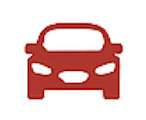Understanding Portugal's Dynamic and Evolving Car Culture
A Brief Historical Context: From Imports to Independence
Portugal's car culture has its roots in the post-World War II era, when the country began importing vehicles from Western Europe. Until the 1960s, car ownership was largely restricted to the wealthy, and cars were seen as a luxury item rather than a necessity. Foreign brands like Renault, Citroën, and Volkswagen were some of the earliest to make an impression on the Portuguese market.
During the Estado Novo dictatorship, infrastructure remained underdeveloped, limiting widespread use of automobiles. However, by the late 1970s, as Portugal democratized and liberalized its economy, a growing middle class began to embrace the car as a symbol of personal freedom. Domestic manufacturing also saw growth, with Portuguese facilities assembling cars under foreign licenses.
Portuguese Car Ownership and Preferences Today
Today, car ownership in Portugal is widespread, with more than five million passenger vehicles registered in a country of just over ten million people. Small and fuel-efficient cars dominate the market, with brands like Peugeot, Renault, and Fiat consistently ranking among the most popular. This preference aligns with the country's narrow city streets, high fuel costs, and environmental concerns.
SUVs and hybrid vehicles have gained popularity in recent years, particularly among families and commuters in suburban and rural areas. However, the average car in Portugal is still smaller than in many other European countries. Many Portuguese consumers also consider resale value and maintenance costs when choosing a vehicle, leading to a practical and informed car market.
Urban Mobility and Public Sentiment Toward Driving
In major cities like Lisbon, Porto, and Coimbra, traffic congestion and limited parking have influenced public attitudes toward daily driving. Many residents rely on a combination of public transportation, walking, and biking for their commutes, especially in city centers where metro systems and trams are efficient and affordable. However, car usage still plays a vital role for outlying districts and weekend mobility.
Portuguese drivers often have a reputation for assertiveness behind the wheel, and traffic laws are strictly enforced with speed cameras and alcohol checkpoints. Despite the dense urban environments, vehicle ownership remains high due to Portugal's car-centric suburban planning in many regions. The government encourages shared mobility through ride-sharing apps and electric scooter programs.
Car Tuning and Motorsports Subcultures
Beyond utilitarian car ownership, Portugal also boasts a dedicated car tuning and motorsport community. Car modification is a popular hobby, particularly among young drivers, who often participate in regional car meets and tuning shows. Popular customizations include performance upgrades, aesthetic modifications, and sound system enhancements, though such modifications must pass inspections for road legality.
Portugal has also produced a number of competitive rally and circuit drivers. The Rally de Portugal, part of the World Rally Championship (WRC), is internationally known and has helped foster national pride in motorsport. Karting is a common entry point for young enthusiasts, with many professional drivers beginning their careers on local tracks scattered throughout the country.
In the southern Algarve region and the area around Braga, amateur racing events and track days attract both participants and spectators. These gatherings foster a close-knit community that balances passion for speed with respect for safety regulations and mechanical know-how.
Electric Vehicles and the Push for Sustainability
Portugal has been a pioneer in electric mobility within the Iberian Peninsula. Since 2010, the country has invested in an extensive national charging network known as Mobi.E, which now includes thousands of stations across urban and rural areas. Government subsidies and tax incentives have further boosted the adoption of electric and plug-in hybrid vehicles.
The Portuguese car market is seeing increasing penetration from brands like Tesla, BMW, and Nissan, with EVs now representing over 15% of new car sales. Local attitudes toward sustainable driving are generally positive, particularly among younger and urban populations concerned with climate change and air pollution.
Despite progress, challenges remain. The average age of vehicles on Portuguese roads is still over 13 years, and many low-income households rely on older, more polluting cars. However, continued government incentives and improvements to charging infrastructure are expected to accelerate the country's transition to cleaner transportation.
The Role of the Automobile in Rural Portuguese Life
In Portugal's many rural regions, such as Trás-os-Montes, Alentejo, and parts of the Douro Valley, the car remains an essential tool for daily life. Public transportation options are limited or nonexistent in some areas, making private vehicles a necessity for commuting, healthcare access, and agricultural logistics. Pickup trucks and durable compact SUVs are common choices due to the region's terrain and labor needs.
Multi-generational households often share a single vehicle, and car maintenance is typically done through trusted local mechanics. Road conditions can vary widely, with some areas having well-maintained highways while others still depend on narrow country roads. Despite these limitations, residents adapt through local knowledge and a strong DIY ethic around vehicle upkeep.
